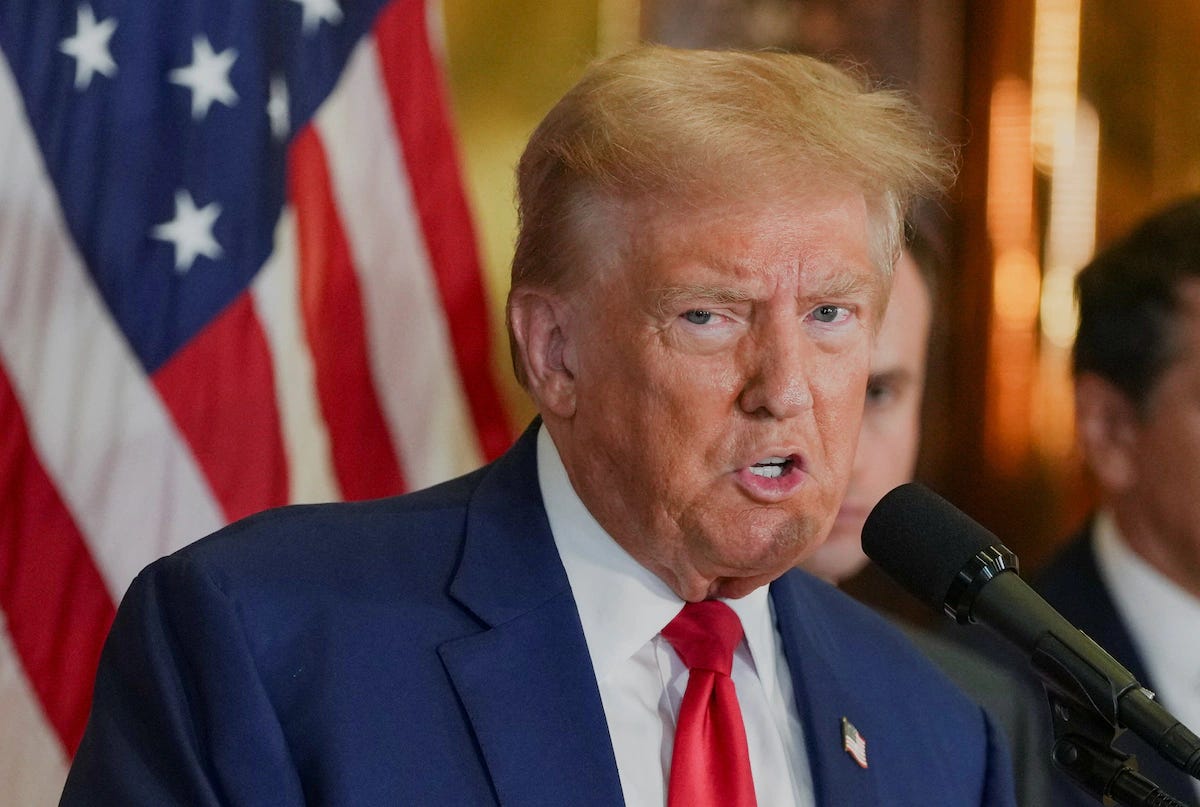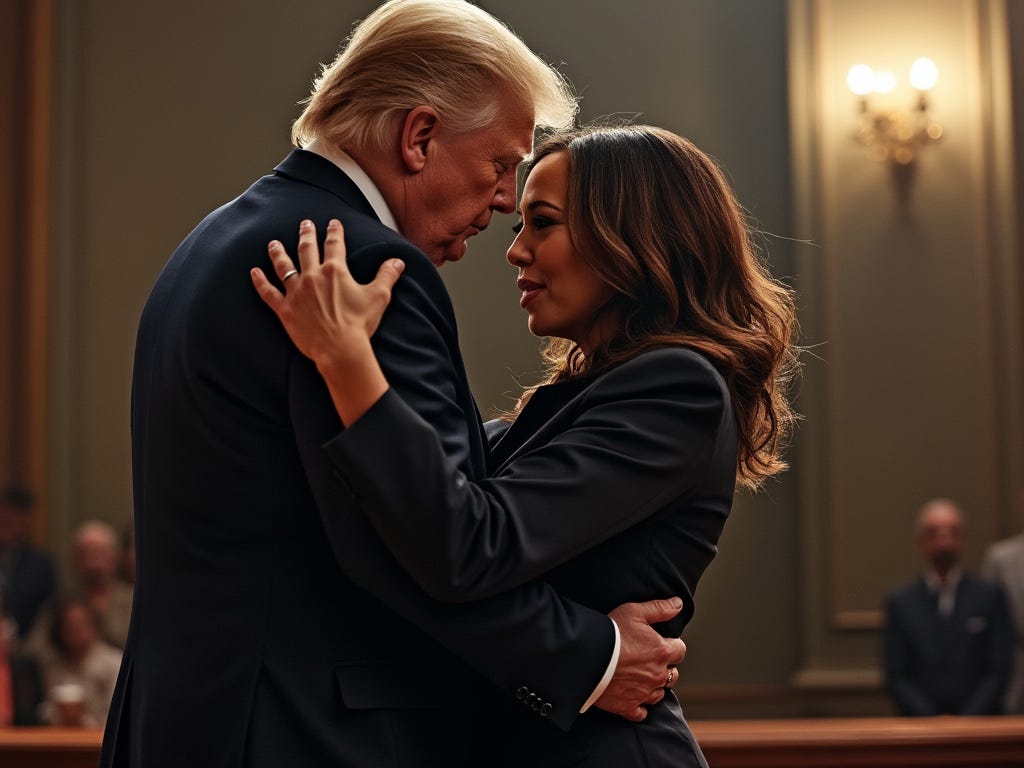Trump’s Hush Money Sentencing Delayed Until 26th November, After Presidential Election.
Trump’s Sentencing Delayed: Legal Drama Paused Until After 5th November Election.

Trump’s Sentencing Postponed Beyond the Poll Day
Donald Trump’s sentencing, originally scheduled for 18th September 2024, has now been postponed to 26th November 2024, just weeks after the crucial 5th November presidential election. Trump, the Republican presidential nominee and former U.S. President, was convicted on 30th May of 34 felony counts of falsifying business records over a $130,000 hush money payment to adult film star Stormy Daniels. This payment, made during the peak of the 2016 campaign purportedly to suppress allegations of an affair, led to his conviction after efforts to disguise this contentious transfer of funds as routine legal expenses. The delay, however, grants Trump only a temporary reprieve, keeping the legal proceedings from overshadowing the final leg of his campaign, allowing voters to make their decision without the cloud of an imminent sentence.
Sentencing Delayed Amid Legal Maneuvers and Political Timing
Trump’s conviction, handed down on May 30, 2024, brought with it the expectation of a September sentencing on the 18th of this month. However, Judge Juan Merchan has now rescheduled the date to 26th November. The delay serves several purposes: providing Trump's legal team more time to appeal the conviction, avoiding the political spectacle of a pre-election sentencing, and addressing Trump’s motion to dismiss the case based on a recent Supreme Court ruling on presidential immunity. Judge Merchan intends to rule on this motion by 12th November, with sentencing to follow if necessary. This is the second time Trump’s sentencing has been delayed, reflecting the intricate mix of legal and electoral considerations in this high-profile case.
Legal Decision with Major Political Stakes
Judge Merchan’s postponement underscores the delicate balance between the law and the upcoming election. The delay gives Trump’s defense team more time to prepare for potential appeals but also ensures that voters are not swayed by the legal proceedings. With a possible sentence ranging from probation to four years in prison, the political consequences of a pre-election sentencing could have been enormous. The decision to delay has now placed voters in the unique position of potentially electing a candidate who could be facing serious legal penalties soon after taking office.
This situation raises fundamental questions about the role of the judiciary during an election year. Merchan’s decision to defer sentencing reflects his understanding of the profound political ramifications. He appears to be prioritising the democratic process, allowing voters to cast their ballots without interference from the legal system, although this has created the unprecedented scenario where Trump could be both president-elect and a convicted felon awaiting sentencing.
A Web of Legal Challenges
Trump’s legal battles extend far beyond the New York hush money case. He is currently facing a total of four criminal cases, and his strategy has been clear: delay proceedings wherever possible, hoping for a political victory that might give him leverage in these matters. Alongside the New York case, Trump faces federal charges for his role in trying to overturn the 2020 election, mishandling classified documents, and inciting the January 6th Capitol riot.
While his legal team has succeeded in pushing other cases into 2025, the New York case is the most advanced. Each of these cases, though, poses serious risks to Trump’s campaign and political future. A conviction in any of them could not only jeopardize his campaign but also lead to constitutional questions about how a convicted president-elect would assume office. The broader legal landscape facing Trump makes the stakes of this upcoming election even more dramatic, as the outcome could determine whether he faces these charges as a private citizen or as the sitting president.
Presidential Immunity and Its Limits
Trump’s defense hinges, in part, on the Supreme Court’s recent ruling that grants broad immunity to presidents for actions taken while in office. His lawyers argue that this immunity should apply to his conduct in the hush money case, especially for actions during his 2017 presidency. However, Manhattan District Attorney Alvin Bragg’s office has maintained that this case relates to private conduct, not protected presidential duties.
This battle over immunity will play a crucial role in Trump’s upcoming appeal, not only in the hush money case but also in his broader legal challenges. The scope of presidential immunity is likely to remain a contentious legal question in the coming months, particularly as Trump continues to run for office. Legal experts are divided on how the immunity arguments will fare, especially as they relate to personal conduct like the hush money payments and classified documents cases.
Could a President-Elect Face Sentencing?
Trump’s potential path to the White House raises significant legal and constitutional questions. If he wins the election, he could find himself in the unprecedented position of being a president-elect facing sentencing or even potential imprisonment. While the U.S. Constitution does not prevent a convicted individual from serving as president, the logistics of such a scenario would be unprecedented. Trump’s legal team is undoubtedly aware of the complexities this could bring, and they are preparing appeals and legal motions in case a conviction leads to a harsher sentence.
Should Trump win and face sentencing after the election, it would create a constitutional crisis, testing the boundaries of U.S. institutions. His potential to serve as President while navigating these legal battles presents a scenario that could reshape the nation's political and legal landscape. On the other hand, a defeat in November could see Trump stripped of the protections of a presidential campaign, facing the full weight of the legal system.
Voters in the Driver’s Seat
As Trump’s legal saga unfolds, it is becoming increasingly clear that the outcome of the 5th November election could determine not just the next President but also the course of U.S. legal history. Trump’s campaign is built around the narrative of victimhood, portraying his legal troubles as politically motivated attacks. This has resonated strongly with his base, ensuring that his political future is tied as much to public opinion as it is to judicial outcomes.
Voters now hold the key. They could elect a president who may face serious legal consequences soon after taking office, or they could opt to defeat him, leaving him to face these charges without the influence of presidential power. The significance of this election cannot be overstated; it is one where voters, not the courts, will ultimately decide the direction of Trump’s fate.

Harris Outpacing Trump in Fundraising Battle
Kamala Harris’s campaign fundraising in August 2024 delivered a major blow to Donald Trump, raising a staggering $361 million—nearly three times Trump’s $130 million for the same period. As of the end of August, Harris’s campaign boasted $404 million in cash on hand, giving her a significant $109 million cash advantage over Trump, who reported $295 million. Since taking over the top of the Democratic ticket in late July, Harris has raised over $615 million, solidifying her campaign’s financial momentum. August also marked a historic milestone for grassroots support, with nearly 3 million donors contributing, including 1.3 million first-time donors. This momentum continued to build on the $310 million raised in July, positioning Harris with a substantial financial edge as the 2024 presidential race intensifies.
The Final Verdict Rests with the Voters
With Kamala Harris’s re-energized and reinvigorated campaign, the outcome of the 5th November election is anything but certain. While Donald Trump’s legal troubles, including the rescheduled sentencing, remain a critical subplot, the real decision on his future lies not in the courts but in the hands of the American people. Whether Trump emerges as president-elect, potentially facing sentencing, or as a defeated candidate confronting his legal battles, the 2024 presidential race promises to be one of the most pivotal in U.S. history. As Trump has often remarked, “the real verdict” will come not from the judiciary, but from the voters. For now, the ball has been passed from the judicial court to the highest court of all—not the U.S. Supreme Court, but the court of the American electorate.



